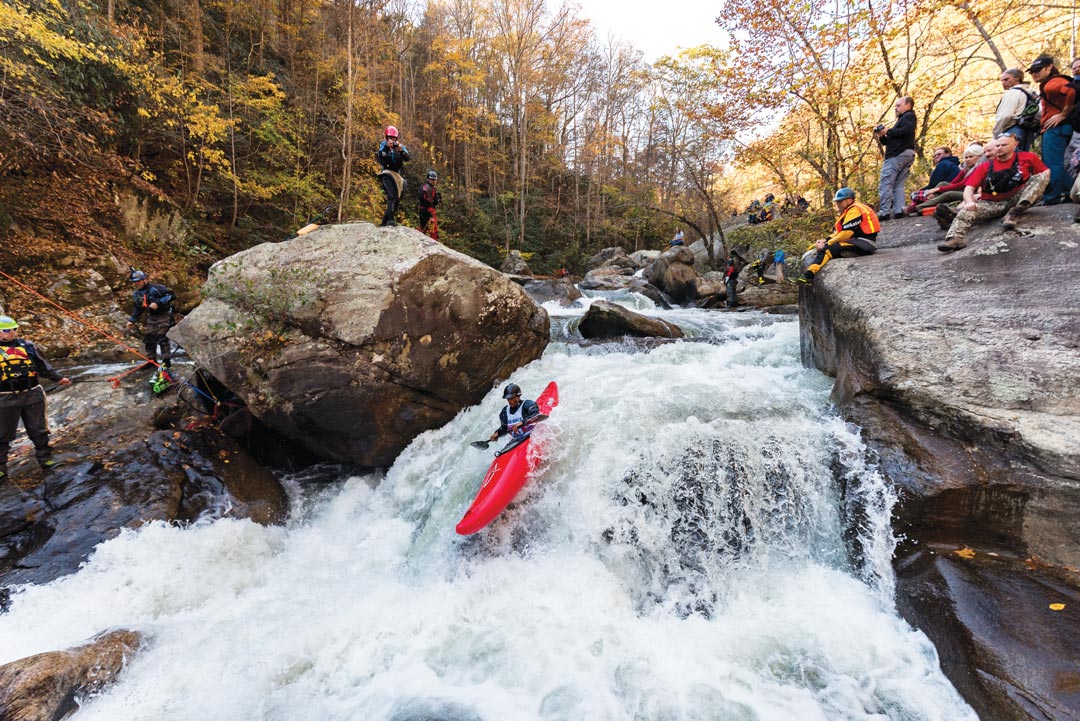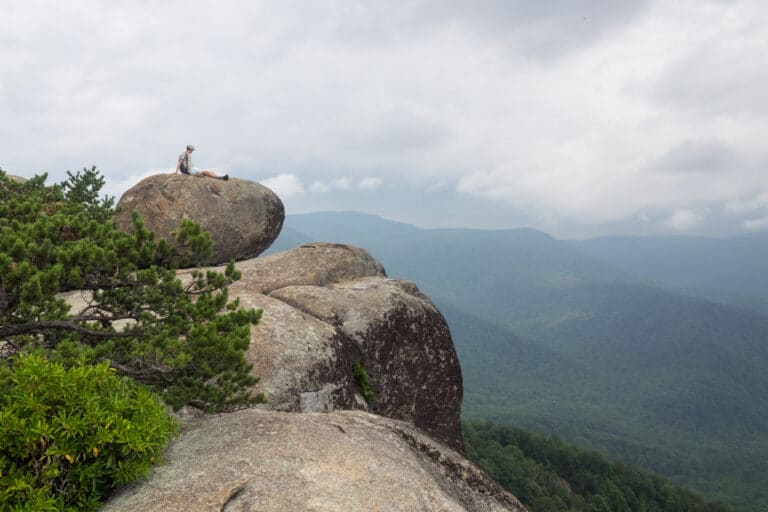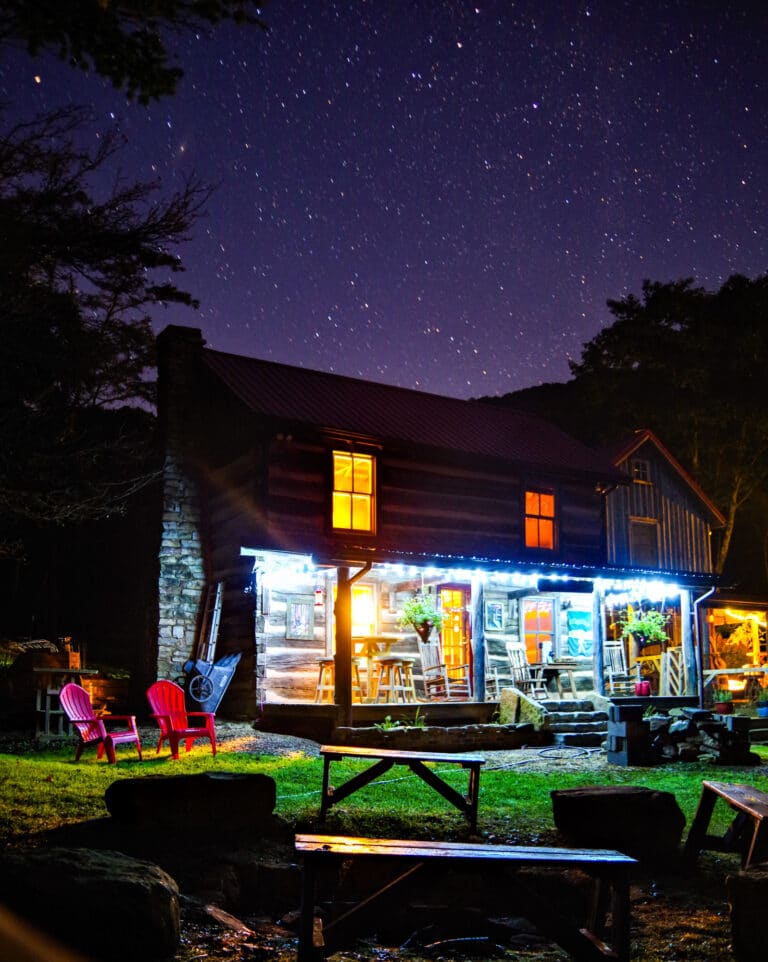One of the South’s best whitewater paddlers discusses being a black boater in the Blue Ridge
It all started with a summer job right out of high school. Rashid Edwards was born and raised in Charlotte, N.C., and his first job after graduation was at the U.S. National Whitewater Center. At the end of his first summer, he was invited to paddle the Upper Green River with some other guides. “Seeing a wild river in the mountains, the feeling of remoteness, it was life-changing,” says Clifton.
BRO talked with the 24-year-old paddler about his favorite rivers, most memorable paddling adventures, and his experiences as a black boater in the Blue Ridge.
What are your favorite paddling spots in the Southeast and Mid-Atlantic?
Linville Gorge is pretty incredible. It’s been called the Grand Canyon of the East. It’s just a beautiful old canyon to explore and appreciate. The Green River is also an amazing place. The river gets much deserved hype, but the surrounding wildlands host trails and access for all types of recreation. Wilson Creek, Tallulah, and the Cheoah are also pretty spectacular.
What’s been your best outdoor moment?
I paddled the Colorado River through the Grand Canyon last spring. It was just incredible unplugging from everything for two weeks. No phone. No internet. Just your thoughts and the wilderness. I had never taken myself for a desert person. Now I appreciate how much life is hiding in those seemingly barren landscapes.
What’s been your toughest outdoor moment?
Green Race 2016 was a huge low and high for me. I had been rehabbing a shoulder injury and was finally feeling like my shoulder was stable. The race started, and I had great lines till exiting Go Left. I ended up rolling to the right and caught a rock with my arm. My shoulder dislocated. I swam, rescued my boat, and tried to get back in the mindset to race. But I couldn’t even pull the skirt back on my boat. I was crushed. I had worked so hard to race, but I couldn’t finish. Still, there was a huge outpouring of support from the community afterward, from friends and strangers. Folks were offering advice and helping to get me back out on the water. It really was heartwarming.
Do socioeconomically disadvantaged groups have a tougher time engaging in adventure sports like paddling?
To be totally real, when you’re a minority in this country, you grow up with a certain set of street smarts or rules. Your parents are going to teach you survival skills and things to do and not do. A non-minority child may not grow up with that. A white suburban family wouldn’t think to tell their kids not to do this or that. They just haven’t experienced that historical discrimination. For example, you don’t go running around the backwoods of North Carolina all loud, proud, and cavalier if you are a minority. That’s just asking for trouble. We have a different perception and experience with the established culture and its rules.
How do you feel about diversity in the outdoors and the conversation surrounding it?
A few years ago, I was paddling with a friend on the Upper Gauley. He brought his friend who happened to be another black man. He said, “I’ve never seen another black guy on the river. To see someone like me on the river is amazing.” That’s been the experience for me as well. When I see another black person, or someone that’s not your typical kayaker, it’s pretty exciting to see that fresh face. While it may not be an issue for someone who’s already in these sports, the view coming from a minority standpoint is that it is refreshing to see other people that look like you getting into the sport. It makes it feel more inclusive. That is important for comfort.
Why are there so few African Americans in outdoor sports?
There are definitely issues like access and socioeconomic reasons. But there are also more nuanced reasons.
For example, perhaps we don’t see black women in the water because it’s very difficult to maintain your hair if you have traditional African American hair, and you are trying to meet beauty standards that males don’t necessarily feel pressured to ascribe to. If I was a woman a few years back and had to ascribe to that standard, I wouldn’t be a kayaker.
In a lot of minority communities, people don’t have the time and money to get themselves or their family into these activities. You can get into basketball, football, and sports like that for much cheaper across the board. A lot of outdoor activities require a larger time and monetary investment. To ignore that and shun those people and not help them into this community is just pretending like those people don’t want to be a part of this. It is the opposite of what the outdoor community should be: welcoming.







